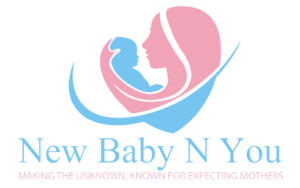A newborn baby only breathes through their noses for the first 12 months of their life. It is because breathing through the mouth isn’t comfortable. Babies make strange rattling sounds while breathing, also known as newborn snorting. Although it may be scary to new moms and dads, usually it does not need much concern. Sometimes, clogged airways in baby noses can cause these sounds. These sounds will reduce as the baby grows older.
Let us understand newborn snorts in detail, what they mean, and when it becomes a cause for concern.
Knowing the Noises
When babies inhale air, their little noses filter and humidify it to clean it. This process aims to get clear, dust and bug-free air to the baby’s lungs. Moreover, the humidified air temperature matches their body temperature. Coughing and dry mucus are consequences of congestion messing with the process, causing issues in the lower airways. It leads to a snorting baby.
Causes of Mucus
Mucus or snots are pretty helpful in keeping dust, bacteria, and foreign substances from getting into lower airways. Despite being gross, they act as useful sticky traps in normal amounts. However, when the baby gets infected by viruses, allergies, dry air, viral illnesses like cold, etc., the snot and congestion increase in the body. Most newborn babies get sick with a cold six to ten times a year.
Although newborn babies face fewer allergies, food or indoor allergens like mould may trigger the issue. A baby snorting due to an allergy has thin, clear, and watery snots.
How to Help the Baby Breathe?
A stuffy baby may be uncomfortable, and crying can concern parents. Mothers can help clear their nasal passage before and in between each feeding as necessary. An over-the-counter unmedicated saline spray can help loosen nasal mucus and decrease tissue swelling. When the saline sits and absorbs for a few minutes, use a suction device to assist the baby in blowing their nose.
Baby’s Breathing: When to be Concerned?
Mothers may feel panicked when the newborn snots and congestion affect a baby. While it is regular for babies to face this issue, the following situations arise as a cause for concern:
High-pitched Sounds:
Usually, babies make low-pitched snoring noises while sleeping. However, if you hear high-pitched sounds from the baby, you may go to a doctor to get it checked. Although there is no need to panic, you must also not wait for the sound to disappear itself. It is because it can be a sign of soft tissues and structures obstructing breathing, or croup, a severe viral respiratory infection.
Dehydration Symptoms
A baby’s sleep cycle may disrupt when the nasal congestion affects their suck, swallow, and breathing rhythm. It may also impact their eating patterns. You must look out for dehydration symptoms like less wet diapers than usual, crying without tears, and getting more tired than normal. Visit your paediatrician if these signs appear and persist and make you and your baby uncomfortable.
Congestion Lasting Longer than Two Weeks
Usually, nasal congestion goes away in a week or two. However, if you face this issue after two weeks, then medical intervention may be necessary. The discomfort of the snorting baby may signal something serious. Thus, consulting your baby’s doctor throughout will help you avoid baby breathing issues later.
Natural Ways to Clear Baby’s Nose
Cold, snorts, noisy breathing, irritated mood, and difficulty in breathing can affect a baby significantly. Let us look at some natural ways to relieve the baby of this misery:
Natural Chest Rubs
You can take a thick lotion and essential oils like eucalyptus, lavender, etc., to make a natural chest rub at home. Over-the-counter rubs are also available. Rubbing them right before bedtime is beneficial and soothes them to sleep soundly.
Steam Sessions
Steam sessions are wonderful in loosening nasal congestion. Steam your bathroom and add essential oils while the steam builds up. You can sit or breastfeed your baby for 15-20 minutes for effect.
Saline Drops or Sprays
Another excellent congestion reliever for a newborn is a saline spray. It works by thinning the mucus and enabling easy clearing. If getting a saline spray from outside is difficult, you can mix a cup of warm and filtered water with half a teaspoon of salt. Cool the mixture completely, tilt your baby’s head back, and spray the solution in their nose. Then, tilt the baby on the side or go with tummy time to let the mucus drain. Use a tissue to wipe their nose clean.
Bottom Line
It can be challenging for a new parent to see their newborn snorting, struggling to breathe due to congestion or a stuffy nose. While snorts aren’t concerning most of the time, ensure to pay a visit to your doctor whenever things seem more unusual.


